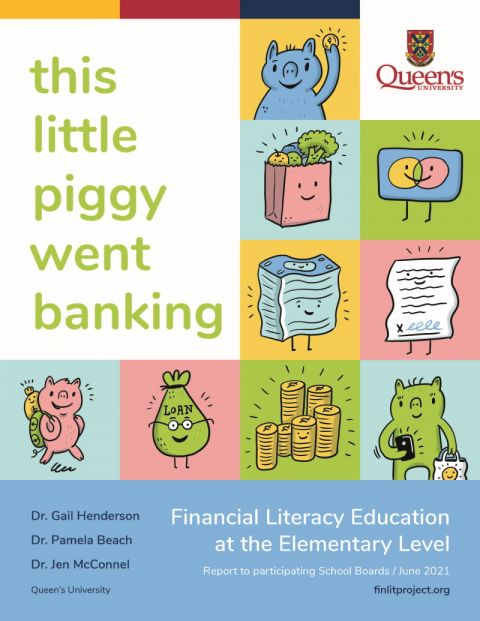
Adding financial literacy to the elementary school curriculum has received widespread support recently. The federal and provincial governments have now taken steps toward making it happen. Key to implementation is the research of Associate Dean Gail Henderson (Law) and Professor Pamela Beach (Education), who have released their final report, This Little Piggy Went Banking: Financial Literacy Education at the Elementary Level.
“Although support for including financial literacy in the mandatory school curriculum is pervasive, there’s very little Canadian research on what is actually happening in classrooms, particularly at the elementary school level,” says Henderson. “Our findings will help to support these efforts and are relevant to all levels of government.”
In July, the Financial Consumer Agency of Canada released its National Financial Literacy Strategy, emphasizing that policy in this area should be evidence-based and research-driven.
Following the Ontario government’s decision in June to mandate financial literacy education in elementary schools, the province’s school boards and schools at the local level now have to implement a new math curriculum.
“We found that elementary school teachers overwhelmingly support including financial literacy in the curriculum, but they indicated the need for more support from their schools, school boards, and the Ministry of Education to support them in teaching this subject,” explains Henderson. “In particular, they need appropriate curricular resources, as well as time and funding to attend professional development to improve their comfort levels in teaching financial literacy.”
Although some resources are available online, where teachers primarily conduct their own searches for classroom material, this requires them to assess the credibility of those resources. “In our study, some teachers indicated that they found that resources produced by financial institutions were credible resources for their students, but what we found is that those resources sometimes only emphasize individual responsibility,” says Henderson. “Of course, that’s an important aspect of financial literacy.
“However,” she continues, “sometimes you can do everything you’re supposed to do when it comes to managing money – you can make a budget and stick to it, you can try to build your savings – but if circumstances beyond your control make it difficult to afford your basic needs, then better financial literacy will not help. If the financial literacy education delivered in schools doesn’t at least acknowledge that people’s individual finances can be affected by systemic shocks, like an ongoing global pandemic, then these lessons will ring hollow for some students, because the materials do not reflect their lived experience. If the resources do not seem relevant to these most vulnerable students, the concern is that they won’t achieve the desired benefits in terms of improving financial behaviors later in life.”
Henderson cautions that it is important not to put too much reliance on financial literacy as the end-all solution for dealing with systemic economic shocks. Instead, she says, “Better financial literacy might help individual financial consumers avoid the kind of mis-steps – taking on high-cost debt, for example – that make them more vulnerable when those shocks occur.”
Henderson’s and Beach’s final report concludes their four-year research project, Canadian Financial Literacy Project, for which they were awarded an Insight Development Grant from the Social Sciences and Humanities Research Council.
“The conversation about financial literacy at a provincial, national and international level is ongoing and evolving,” says Henderson. “We hope our report will inspire more research into the ways that teachers can support students to become informed financial consumers, and how schools, school boards and ministries of education can support teachers in this work.”
By Lisa Graham